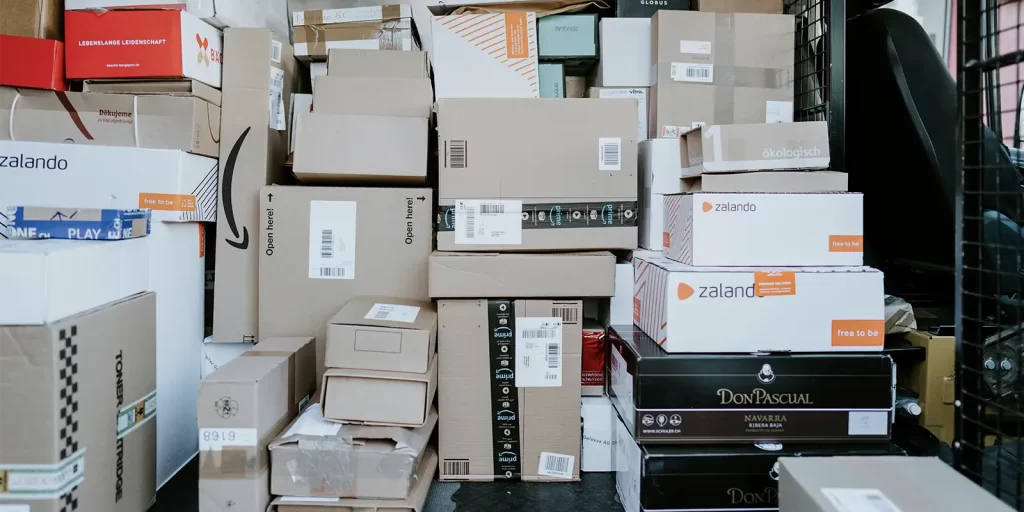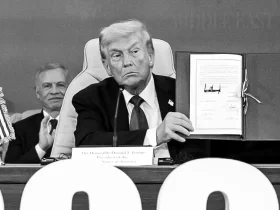Trade tensions between the United States and the international community have escalated once again following the Trump administration’s decision to eliminate tariff exemptions on small parcels. Beginning on August 29, shipments valued at $800 or less—which until now could enter the country duty-free—will be subject to fees ranging from variable percentages to flat-rate charges.
Framed as a move to protect domestic industry and curb the growing wave of low-cost imports from e-commerce platforms, the policy has already had far-reaching consequences. At least 25 countries, including France, Germany, India, Australia, Spain, and Japan, have suspended outbound postal services to the United States, according to the Universal Postal Union (UPU), the UN agency responsible for overseeing international mail services.
Why Have Shipments Been Suspended?
The UPU confirmed in a statement that member countries representing a wide geographical spread have halted their outgoing deliveries to the U.S. The reason, postal services explained, lies in the uncertainty surrounding how the new tariffs will be implemented and the lack of clear operational guidelines from U.S. authorities.
Many postal operators fear delays, mass returns, or unexpected costs for recipients, and therefore have chosen to pause services until the situation becomes clearer. In some cases, the restrictions are partial. Japan, for instance, announced it will continue to allow private shipments under $100 but will no longer accept higher-value parcels or items intended for commercial resale.
The End of the Duty-Free Exemption

For years, U.S. regulations allowed packages with a declared value of $800 or less to enter the country without paying duties. This rule benefited millions of consumers who regularly shopped online from abroad, as well as small foreign businesses hoping to reach American buyers.
With the exemption now eliminated, shipments will face new charges. Duties could range between 10% and 50% of the item’s declared value, and during a six-month transition period, a flat fee of $80 to $200 per parcel will apply depending on the type of goods.
For consumers, this represents a sharp increase in final costs. Logistics experts warn that many shoppers will be hit with “nasty surprises” when they are asked to cover additional duties before receiving their orders.
Customs and the Role of Delivery Companies
Every parcel entering the United States must first clear Customs and Border Protection (CBP). There, officials check the Harmonized System (HS) code, an international classification used to assign tariffs to traded goods.
Under the new rules, parcels that once bypassed customs with minimal checks will now be flagged for duty assessments. Shipments sent via the U.S. Postal Service (USPS) may require recipients to pay their fees upon pickup or delivery, while private carriers such as FedEx, UPS, and DHL are expected to charge customers directly or include duties in their invoices.
This added layer of bureaucracy is expected to slow down the movement of goods through customs and increase operational costs for courier services. Many industry players are likely to adjust their pricing structures accordingly, further raising shipping costs for consumers.
A Policy Originally Targeted at China and Hong Kong
According to reports, the Trump administration initially designed the measure to crack down on shipments from Chinese e-commerce giants like Shein and Temu, whose popularity has skyrocketed in the U.S. thanks to their ultra-low prices and direct-to-consumer business model.
However, in order to ensure its effectiveness, the policy was quickly expanded to cover all countries—not just China and Hong Kong. This sweeping approach means that even close U.S. allies such as European nations and Japan are now directly impacted.
Billions in Expected Revenue
U.S. Treasury Secretary Scott Bessent has described the tariff change as a significant revenue stream for the federal government. He estimates that the new rules could generate more than $500 billion annually, far exceeding the $300 billion forecast originally put forward.
According to Bessent, tariff revenue already saw a notable increase between July and August and is likely to continue climbing as the new policy takes full effect.
But while Washington stands to benefit financially, the ripple effects for international trade may be severe. Cross-border e-commerce purchases will become more expensive, limiting competitiveness for foreign vendors and reducing affordable options for U.S. consumers.
What Experts Are Saying
Industry specialists warn that the policy shift will disrupt global trade flows in the short term. Alison Layfield, Vice President of Product Development at international logistics company ePost Global, cautioned: “I think consumers are going to be in for a nasty surprise when they see that additional cost on their orders.”
Trade analysts add that the suspension of postal services from multiple countries is likely only the beginning. They predict diplomatic tensions with U.S. trading partners, who may view the measure as overly broad and protectionist. At the same time, foreign sellers, particularly small and mid-sized businesses, will face major challenges in continuing to serve U.S. customers.
What Comes Next?
The suspensions will remain in effect until foreign postal operators receive clearer guidance on how U.S. authorities intend to apply the new tariffs. The UPU has stated it will continue working with Washington to provide updated information to its members and help reduce uncertainty.
In the meantime, consumers who purchase from international vendors should expect delivery delays and possible duty charges before receiving their goods. Longer term, the shift could reshape the landscape of retail imports, boosting domestic suppliers while making it harder for overseas businesses to compete in the U.S. market.
What’s clear is that this marks a turning point for global e-commerce. While the U.S. government anticipates billions in new revenue, the immediate burden will fall on the very stakeholders who fuel international trade: postal operators, foreign sellers, and millions of everyday shoppers who, until recently, enjoyed tax-free access to global marketplaces.








































Leave a Reply